Afrolatin@ Theatre Series
Interview with Playwright and Actress Krysta Gonzales
Addressing the call to action in the article “Why We Need Afrolatin@ Theatre,” this series highlights many outstanding Afrolatin@ theatre artists around the United States who diligently offer the world their art. This second installment profiles playwright and actress Krysta Gonzales.
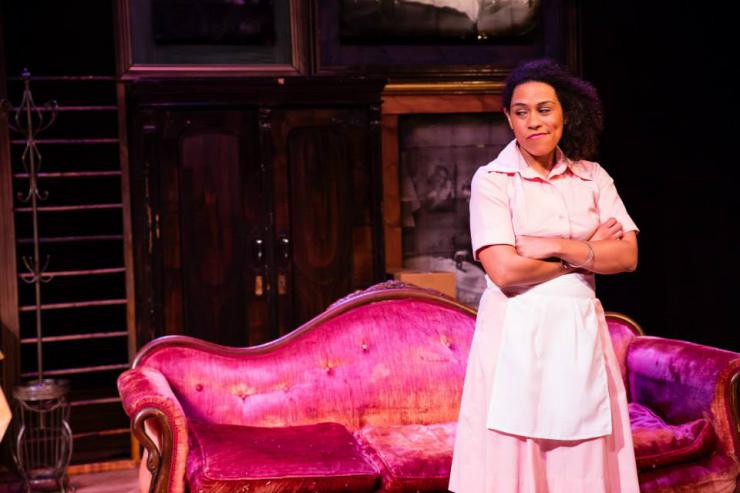
I was captivated by the incredible Krysta Gonzales some time ago when I began following her on Twitter a few months ago. In the age of social media, it is easy to connect with artists who are creating thought-provoking theatre. Gonzales is a bubbly, motivated, and determined “Blaxican” whose work I first caught wind of when my friend mentioned her piece on police brutality called Robin Hood: An Elegy. She has performed in several shows, including Tanya Saracho’s El Nogalar with Teatro Vivo. Krysta has recently starred in Pulitzer Prize- nominee Tanya Barfield’s Bright Half Life with Theatre en Bloc in the Pony Shed at the Vortex. Bright Half Life is a moving piece about love, marriage, and taking on the trials of life with the one you love. Now, the star is working on several projects including my own play The Stories of Us. In between her rehearsals, she talked with me about her experiences creating new work, and her passion for Afrolatin@ stories, and which Prince Royce song makes her start dancing!
Jelisa Jay Robinson: I first learned of your work during the Austin Latin@ New Play Festival 2016 when Más Cara premiered. Can you tell us about that piece?
Krysta Gonzales: Más Cara dives into the images that people associate with Latinas. Growing up, I felt like I was put into boxes and always associated with stereotypes of what it means to be Latina and Afrolatina. Más Cara seeks to explore the possibility of Latinas not just fitting into one box, but also being multifaceted, complicated individuals. My dream is to get it to full production, but there are steps between where it is now and that dream. I’ve submitted the current script to a couple more festivals to see if I can get additional feedback before I start pitching—fingers crossed.
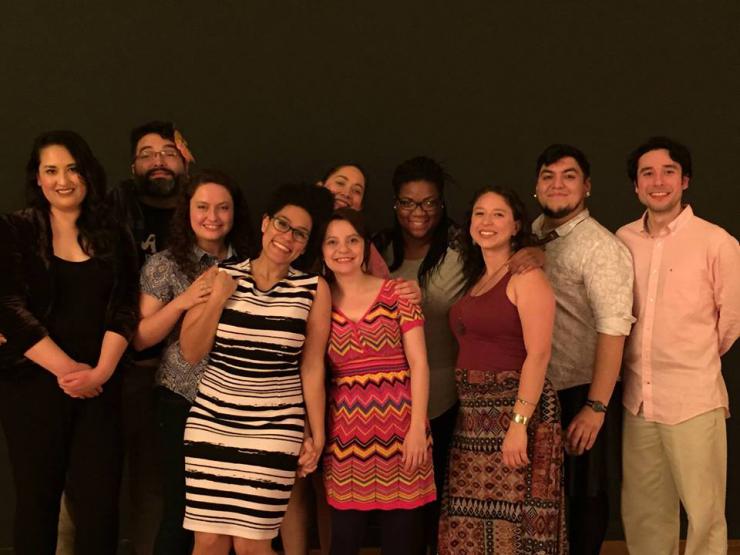
Jelisa: Working with Teatro Vivo, one of the premiere Latin@ theatre companies in Texas, is an amazing opportunity. As a playwright, can you talk about that experience?
Krysta: I have so many good things to say about the Austin Latino New Play Festival. There is something so special about Teatro Vivo—they’ve got this nice balance of cariño and professionalism that makes them so wonderful to work with. And thank heavens for ScriptWorks and all the support they offer playwrights for new work. My director Rudy Ramirez, and the cast are all such seasoned collaborators who brought so much to table; they were remarkably generous with their performances and feedback to help me with re-writes. It was so wonderful to get to meet other playwrights and make new friends. I love being able to cheer fellow artists on as they work.
Jelisa: In addition to writing, you are also an actress and voice over artist. How does your Afrolatina identity play into your artistry?
Krysta: For acting, I have no other place to begin besides my body, history, memories, and cultural points of reference. In my process, I’m my foundation and then the research, and additional character development gets layered on top. For writing, I admit I’ve got an agenda and I start from what I know—me. I’ve got lots of memories that I like to alter as part of the storytelling process. My identity and life experience as a queer cis-woman of color are incredibly specific and so, I take comfort in knowing that there are no stories exactly like mine. I also like the prospect of using theatre to rewrite history or imagine a different reality.
When I was little, I couldn’t understand why I didn’t have hair like my mother—“line hair,” as I called it. So I put a towel on my head (because to baby Krysta, princesses only have line hair), and pretended to be a princess on a waterfall. I cast my guelita as the prince who had to wake me with a kiss, and then dance with me. It’s all on VHS somewhere...thankfully nobody has a VCR anymore—except my guelita. So for a long time I’ve been a writer, producer, director, and actor.
For acting, I have no other place to begin besides my body, history, memories, and cultural points of reference. In my process, I’m my foundation and then the research, and additional character development gets layered on top. For writing, I admit I’ve got an agenda and I start from what I know—me.
Jelisa: You’ve been acting for quite some time. What are your early experiences with theatre that influenced who you are as an artist?
Krysta: I’d wanted to be an actor since I was six when my mom took me to see Into the Woods at University of Texas El Paso. I didn’t get to be onstage until I was sixteen when I did my first show in high school—Little Shop of Horrors. I also competed on the speech and debate tournament circuit doing Humorous Interpretation, Dramatic Interpretation, Duet Acting, and Poetry. Then I went to study theatre at NYU Tisch School of Drama at the Experimental Theatre Wing…and here I am, still writing and acting in both traditional and experimental work.
Jelisa: Why is Afrolatin@ representation important in Theatre?
Krysta: Visibility (I use this term in a theoretical sense, as opposed to literal visibility, for concern of sounding ableist) is everything. It’s the first step to accessing and understanding the vastness of the human condition. For Afrolatin@s to get more involved in theatre, I think it all starts with writing and the conception process of creating work. In theatre school, I was often reminded that I’d probably have to write parts for myself because ain’t nobody gonna write for me.
Jelisa: What other things do you do besides theatre?
Krysta: I love to dance. I enjoy traveling and learning new languages—Brazil and Portuguese have a special place in my heart. I also love doing voiceover and on-camera work. If you ask me to dance a Bachata during Prince Royce’s “Las Cosas Pequeñas,” I will say yes.
Jelisa: What have been the highlights of your career?
Krysta: I feel so lucky to have such a hard time choosing! Getting into NYU definitely made me feel like I was hot stuff. And I know this is so tiny and ridiculous, but at the age of thirty-one, I’m still proud of the fact that I was voted as having the Best Sense of Humor my junior and senior years of high school. I feel like I’ve succeeded if I can make someone laugh or smile. Stepping fully into playwriting with Robin Hood: An Elegy and Más Cara have also unlocked parts of myself that I think help ground me as a performer.
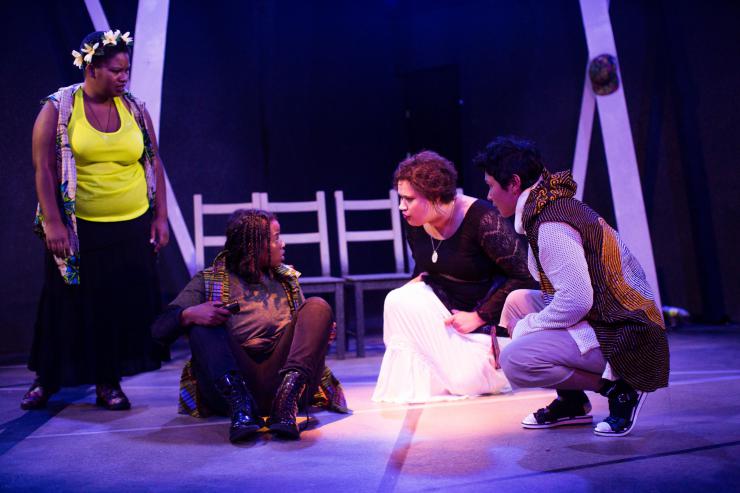
Jelisa: You seem to be in several upcoming projects. What are you working on currently?
Krysta: For writing—no, nothing new. I’m focusing on re-writes of Robin Hood: An Elegy and Más Cara for other play festivals. For acting, I was rehearsing for Bright Half Life by Tanya Barfield, produced by Theatre en Bloc, which went up at the end of March. And then your show The Stories of Us. I’m super excited about both projects because I got to flex really different acting muscles for each. I’m also working on my voiceover demos for commercial and animation work.
Jelisa: What advice would you give to Latin@, Afrolatin@ and African American playwrights and theatre artists?
Krysta: Don’t let anyone “should” all over you and don’t “should” all over yourself. Writers: nobody knows the story you want to tell better than you do. You get to decide what feedback serves you and the rest of it you can leave behind. Last, I tell everyone this, but The Artist’s Way by Julia Cameron is an incredible book/program to cultivate your creativity—whether you’re just starting out, have been in the game a while and are feeling a little stuck, or anywhere in between.

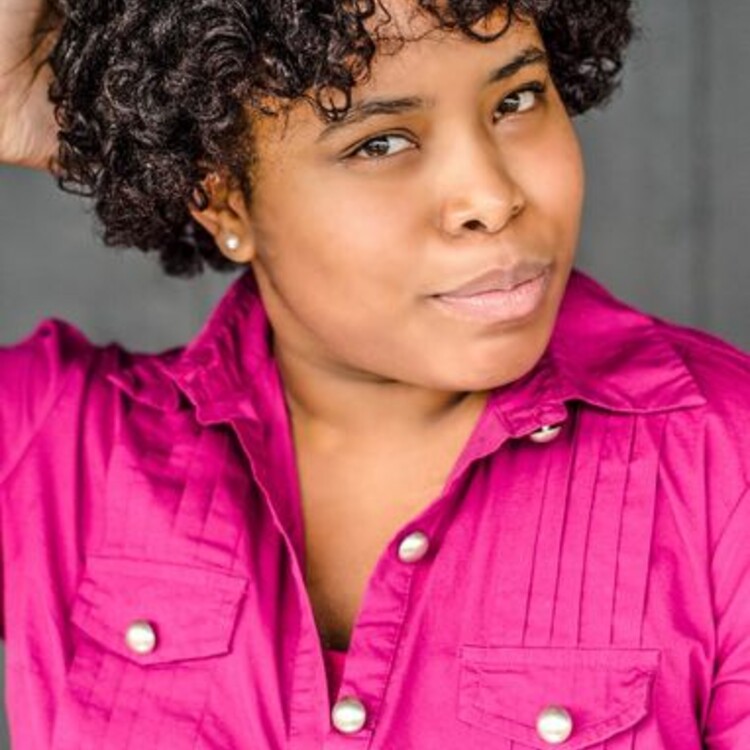
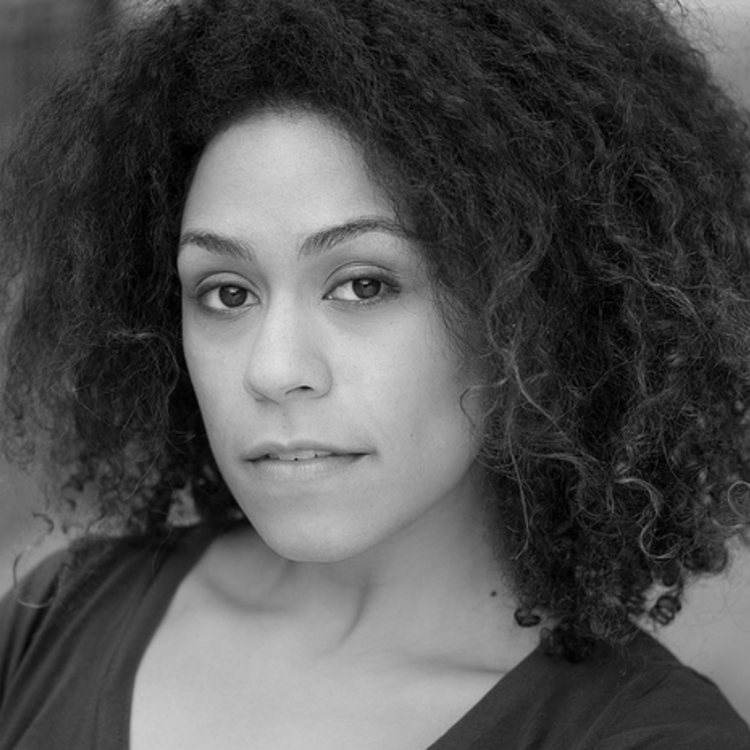
Comments
The article is just the start of the conversation—we want to know what you think about this subject, too! HowlRound is a space for knowledge-sharing, and we welcome spirited, thoughtful, and on-topic dialogue. Find our full comments policy here
I think we have so much to learn from artists like Krysta and the Afro-Latin@ Series is really filling these gaps. I really enjoyed her performance in "The Stories of Us" and would love to see her plays produced in the near future!
This is a great addition to the growing body of work highlighting Krysta's journey and talents. To read more about Krysta, check out this interview I posted in February: https://50playwrights.org/2...
We do have so much to learn about creating art and coming from an honest space. Krysta had so much insight!